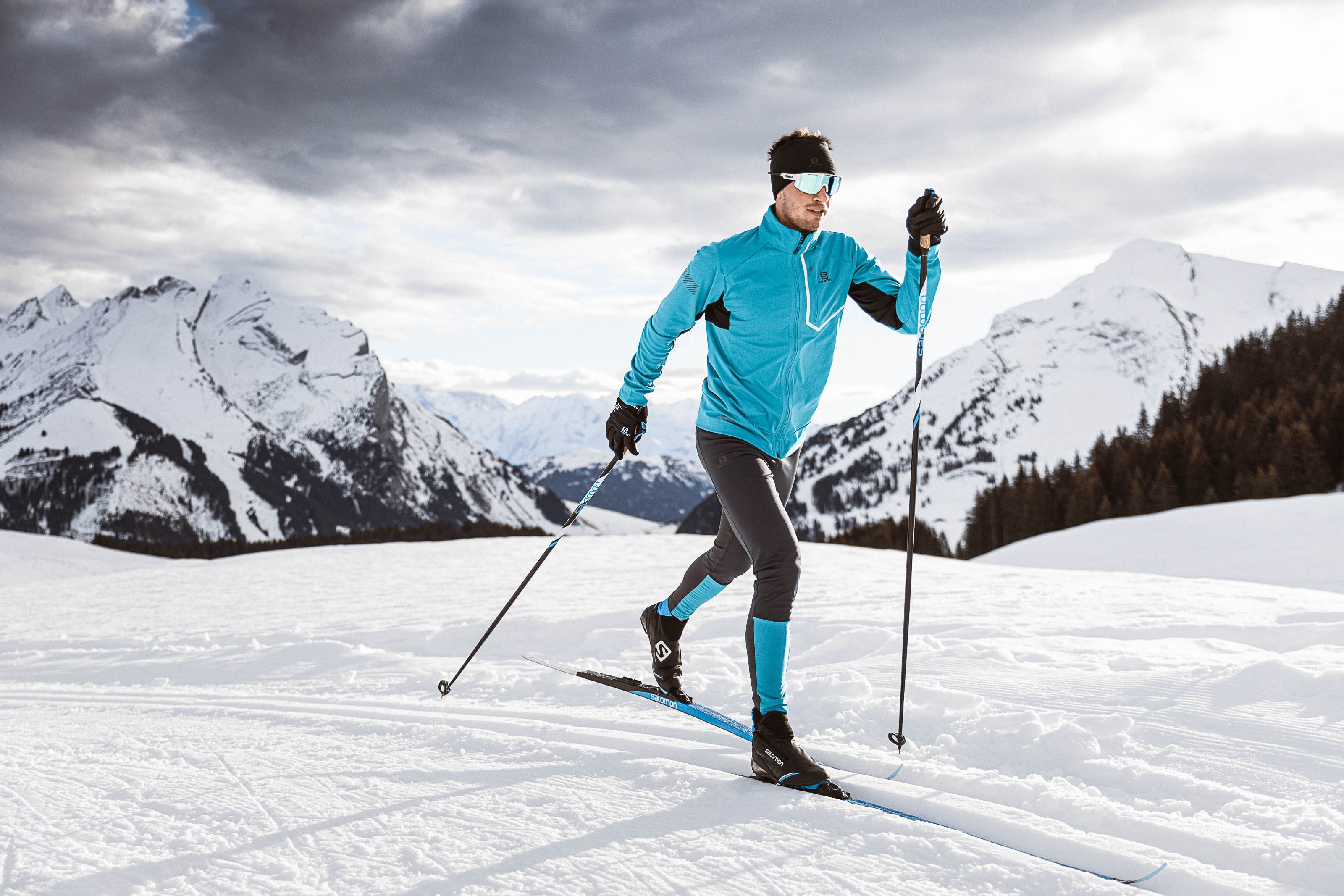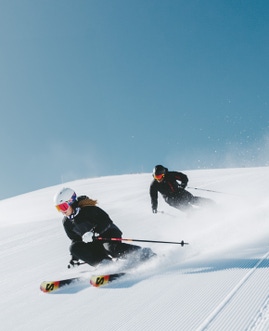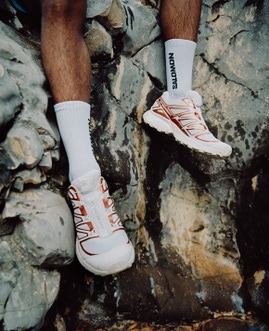The highly technical nature of winter sports equipment leaves little room for design variability, where space is often made to implement sustainable elements in products. The nature of products like skis—which are comprised of metals, glass/carbon fibers and wood—makes sustainable manufacturing a formidable task for R&D professionals. Despite this challenge, Salomon’s Winter Sports department is pledging today to chart a new, more sustainable course in the years ahead, guided by the goals set forth in the company’s overall sustainability commitments unveiled in 2019. As Salomon has recently begun to do in its footwear range, the winter sports product design team is now working to develop sustainability excellence that does not compromise performance.
The implementation of this new, more sustainable design ambition represents a more responsible approach to creating winter sports equipment—including hardgoods such as skis, ski boots, goggles and helmets—and is another step toward realizing the overall commitments the company has made to lessen its environmental impact. Most notably, by 2030, Salomon has pledged to reduce its overall carbon emissions by 30 percent and committed to creating 100 percent of its products with circular economy principles.
“As the global leader in the winter sports category, we feel a responsibility to set an example of how our winter sports business can operate in an increasingly sustainable manner,” says Xavier LeGuen, Vice President of Winter Sports for Salomon. “The health of the sports we love is dependent on the planet and this is an opportunity for us to do our part and help show the way forward by sharing our sustainability pillars inside our winter sports business. In the future, we expect that the entire winter sports industry will work together to advance efforts in this area and make a positive impact on the climate threat we are all facing.”
Recognizing that the future existence of Alpine skiing, Nordic skiing and snowboarding are directly impacted by climate change, Salomon is confirming that sustainability will be a major aspect of its performance parameters in future winter sports products. With the motivation to act across its entire supply chain beyond its own operations, Salomon Winter Sports has set forth a plan to operate more sustainably by:
- Launching a range of progressive and highly sustainable winter sports products
- Defining a list of sustainability “basics” that all winter sports products must meet by 2025, in line with Salomon’s global sustainability strategy
- Collaborating with partners at resorts and in distribution channels, as well as engaging with the winter sports community and shaping the discussion towards ambitious collective sustainability goals
The first of those sustainable winter products is the new S/MAX eSkin Nordic ski, the company’s first ski constructed with a sustainable mindset. The ski’s core construction utilizes recycled plastic bottles.

Already, Salomon Winter Sports has instituted a number of sustainability “basics” that make a global impact in the following areas:
- PACKAGING: All packaging for Alpine and Nordic ski boots, snowboard boots, bindings, helmets and goggles is 100 percent cardboard-certified; all single-use plastics in snowboard boot packaging have been eliminated; plastic bags around pairs of ski poles have been replaced with a small plastic clip, saving more than 5.4 tons of plastic per year (12.6 tons of CO2); the plastic window on goggle packaging has been replaced with a full cardboard box, eliminating the need for glue; the use of 1 million single-use polybags has been avoided since they were removed from snowboard binding packaging
- DURABILITY AND REPAIRABILITY: 100 percent of snowboard bindings are repairable and baseplates now have a lifetime warranty, emphasizing re-usage over consumption
- REMOVAL OF CHEMICALS AND MATERIALS OF CONCERN: 100 percent of all Salomon snowboard boots are PFC/PVC-free; snowboards now use cork rails instead of rubber rails for a more eco-friendly ride on high selling boards; the entire Nordic ski boot range will be PFC/PVC-free by Fall/Winter 2023; the alpine ski boot range will be PFC/PVC-free by Fall/Winter 2025
- INTEGRATING THE USE OF MORE SUSTAINABLE MATERIALS: All skins for backcountry skiing, Nordic skiing and snowboarding split boards now use Mohair sourced from sustainable and cruelty-free production; snowboard cores are using more bio-sourced materials in their construction; in all black colored alpine ski bindings, 10 percent of the product is made from recycled materials
Beyond these various steps taken at Salomon’s Annecy, France headquarters, the Amer Sports ski factory in Altenmarkt, Austria (where Salomon and Atomic skis are manufactured), has done an exemplary job with its waste management scheme and energy sourcing. The Amer Sports Winter Sports Operations team has received the Austrian Phönix 2014 waste management award for its waste re-use scheme at the facility, which operates 100 percent on renewable electricity and features a biomass power plant.
“The impetus for these changes has come from our employees, who are passionate about doing business in a mindful manner, as well as some of our professional athletes and ambassadors, who are very committed to environmental preservation and sustainability,” says LeGuen. “Longtime Salomon ski ambassadors like Mike Douglas, Chris Rubens, Victor Galuchot, Greg Hill, Leah Evans and all our winter sports athletes have been vocal in their desires to see Salomon transform its winter sports for good through a new sustainable approach that does not sacrifice the performance of our products.”











